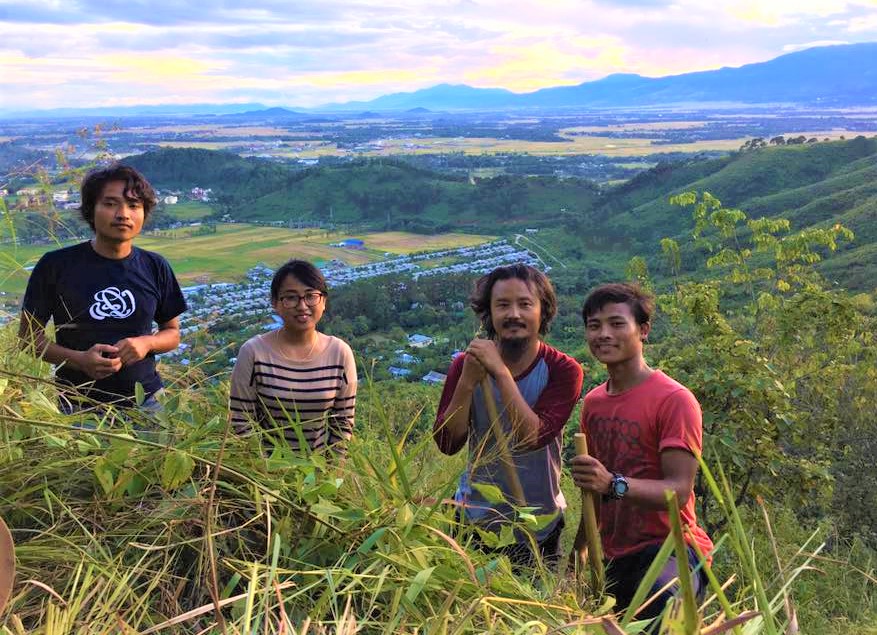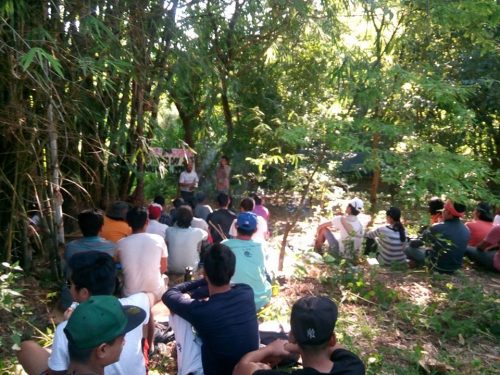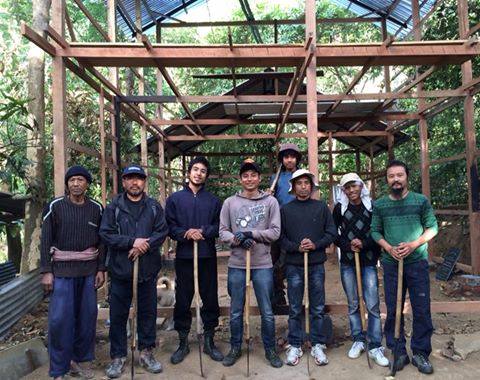In recent years, there have been instances of people coming together for a common cause but such action is usually initiated by NGOs or catalysed by government schemes. Punshilok in Langol Hill Range, 6 km from Manipur’s capital Imphal, is a notable exception.
In a little over a decade, Punshilok has transformed from a dry, barren hill into a verdant forest teeming with wildlife. And this has happened due to the tireless efforts of a group of youngsters that was determined to restore the ecological balance that originally existed in the region.
In 2003, Moirangthem Loiya Ngamba was scouting for land to create a green space for the local communities. A passionate nature lover, he had recently founded his NGO, Wildlife and Habitat Protection Society (WAHPS), to conserve the rich natural wealth of the region.
It was during this time that a farmer from the foothills of Langol Range suggested a visit to a nearby hill, Punshilok. With a name that literally means ‘Spring of Life,’ this hill had once been an important forest during the reign of King Luwang Ningthou Punshiba, a ruler from whom many Manipuris trace their descent. However, years of deforestation, forest fires and indiscriminate utilisation of forest resources by villagers had rendered it barren
When Moirangthem came upon Punshilok it was straggly, rock-strewn patch of land with nothing growing on it except for some wild weeds. The gurgling stream flowing through it had plenty of water but was used mainly by herds of cattle and sheep, not humans. But somehow, he knew that this was the land he had been looking for.
With the help of a few friends, Moirangthem started by clearing the area of weeds. Next, they cleaned and de-silted the stream, making it a good source of drinking water for the people of the valley. This was followed by a major afforestation drive, with young boys and girls working relentlessly towards greening Punshilok.
To ensure that the saplings were carefully nurtured and protected, Moirangthem decided to make Punshilok his home. He built a small hut for himself and lived on the hill, all alone, for the next six years. Under his careful attention, lush green vegetation spread over the land, breathing life into it.
When wild animals started returning to the forest, Moirangthem hired caretakers to prevent hunting, poaching and deforestation. In order to protect Punshilok from wildfires, every November, he and his friends from WAHPS would camp on the hill and make fire lines (gaps in vegetation that acts as a barrier to slow or stop the progress of a wildfire) in the forest.
Today, Punshilok is a thriving forest that is a home to several species of wild animals such as pangolins, barking deer, porcupine and several species of birds. There are over 200 species of plants, including orchids, herbs and medicinal varieties, and over 20 species of bamboo growing in the forest. An important source of minor forest produce for the locals, the forest has also improved the micro-climate and augmented the water table of the surrounding area.
Visitors from near and far also visit this scenic and serene place to bird-watch, to meditate or to simply luxuriate in the lap of nature. Lushly-canopied mud paths, carpeted by fragrant blossoms, wind their way through the forest whose quiet environs is broken only by the chirping of birds and the distant beats of folk music, wafting up from the foothills below.
Over the years, WAHPS has grown by leaps and bounds under Moirangthem’s guidance to establish itself as an important nature conservation organisation. From tree planting drives to animal rescues, it has organised many environment-related activities with local participation. The NGO has also built a few eco-friendly shelters, where visitors and volunteers can stay or rest after toiling in the forest, and a small kitchen (run by the caretaker) at Punshilok.
Moirangthem feels that the successful transformation of Punshilok from a barren land into a thriving forest is an example that can inspire individuals, groups and organisations that visit the forest. So, he is now working to increase awareness about why a healthy, well-functioning ecosystem is important for the local economy.
“Awareness is the key. Many people in Manipur are poor and in order to survive, they are forced to exploit the environment. This can change only when we impress upon them that by causing damage to the environment, they are only reinforcing their poverty, not removing it,” concludes the hard-working man who has made a barren hill green again.
Photo Source: Moirangthem Loiya Ngamba. Click here to contact him.
Source: The Better India




